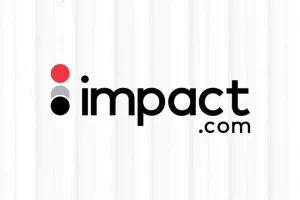
Share
As we near the last quarter of 2024, it’s time to ramp up your affiliate marketing strategy and prepare your ecommerce brand for the biggest shopping days of the year. President’s Day, Memorial Day, Independence Day, and Prime Day have already driven impressive affiliate revenue this year, highlighting the significant impact holidays and shopping events have on traffic. However, we know that the main shopping surge happens at the end of Q3 and throughout Q4. We’re talking about Labor Day, the week leading up to Thanksgiving, Black Friday, and Cyber Monday.
Key Dates
- September 2, Labor Day: As the summer season winds down, Labor Day presents an opportunity to drive sales as shoppers begin preparing for the fall season and thinking about gifts.
- November 25, Thanksgiving Week: The week leading up to Thanksgiving is filled with eager shoppers awaiting for the best deals of the season, making it also filled with opportunities. Data shows that shopping activity really ramps up during this time, from early Black Friday promotions and early holiday shopping.
- November 29, Black Friday: What started as one day to kick off holiday shopping with discounted rates has evolved into a multi-day event filled with special deals, both in stores and online.
- December 2, Cyber Monday: Born out of Black Friday in 2005, Cyber Monday has become a major online shopping event of its own, offering major deals and driving serious traffic.
Historically, these end-of-year holidays consistently rank as the highest revenue days for ecommerce brands. Shoppers are ready to spend and looking for great deals, making it crucial for your brand to be well-prepared. Effective affiliate management during this period can significantly impact your bottom line. Last year we saw shopping ramp up the week of Thanksgiving, with top revenue days being Thanksgiving Day, Black Friday, the weekend following Thanksgiving, and Cyber Monday.
How to Prepare
- Review Past Performance: Look at your historic data to understand which strategies worked best during previous high-traffic periods. Analyze what drove the most sales and optimize your approach accordingly.
- Optimize Affiliate Partnerships: Ensure your affiliate partners are equipped with the latest promotional materials and have clear instructions for upcoming campaigns. Consider offering exclusive deals or bonuses to share with their audiences.
- Update Marketing Content: Refresh your content to align with seasonal trends and prominently highlight all promotions. Engaging and timely content can capture the attention of eager holiday shoppers.
- Test for Increased Traffic: Make sure your website is well prepared for the influx of traffic. Testing your site’s performance and tracking capabilities can help avoid potential issues during peak times.
- Plan Early: The best tip for last – plan early. Early preparation allows you to fine-tune your strategy without stress and ensures that everything will run smoothly during the busiest shopping season of the year.
Conclusion
Now is the time to strengthen your affiliate marketing strategy for end-of-year shopping holidays and events. By leveraging historical data and optimizing your approach, you can set your brand up to drive significant revenue and increase brand awareness. Take proactive steps to refine your strategies, engage your target audience, and ensure your brand is well-prepared to end 2024 on a high note.
Work With Advertise Purple
With over a decade of experience, Advertise Purple has generated $4.6B in affiliate revenue for more than 5,000 brands across 23 verticals, establishing its spot as a leader in partnership marketing management. Combining extensive experience with exclusive proprietary affiliate partnership technology Purply™, Advertise Purple delivers award-winning affiliate program management for Enterprise, SMB, and international e-commerce brands aiming to drive performance-based online customer acquisition. Contact our team to learn more.




